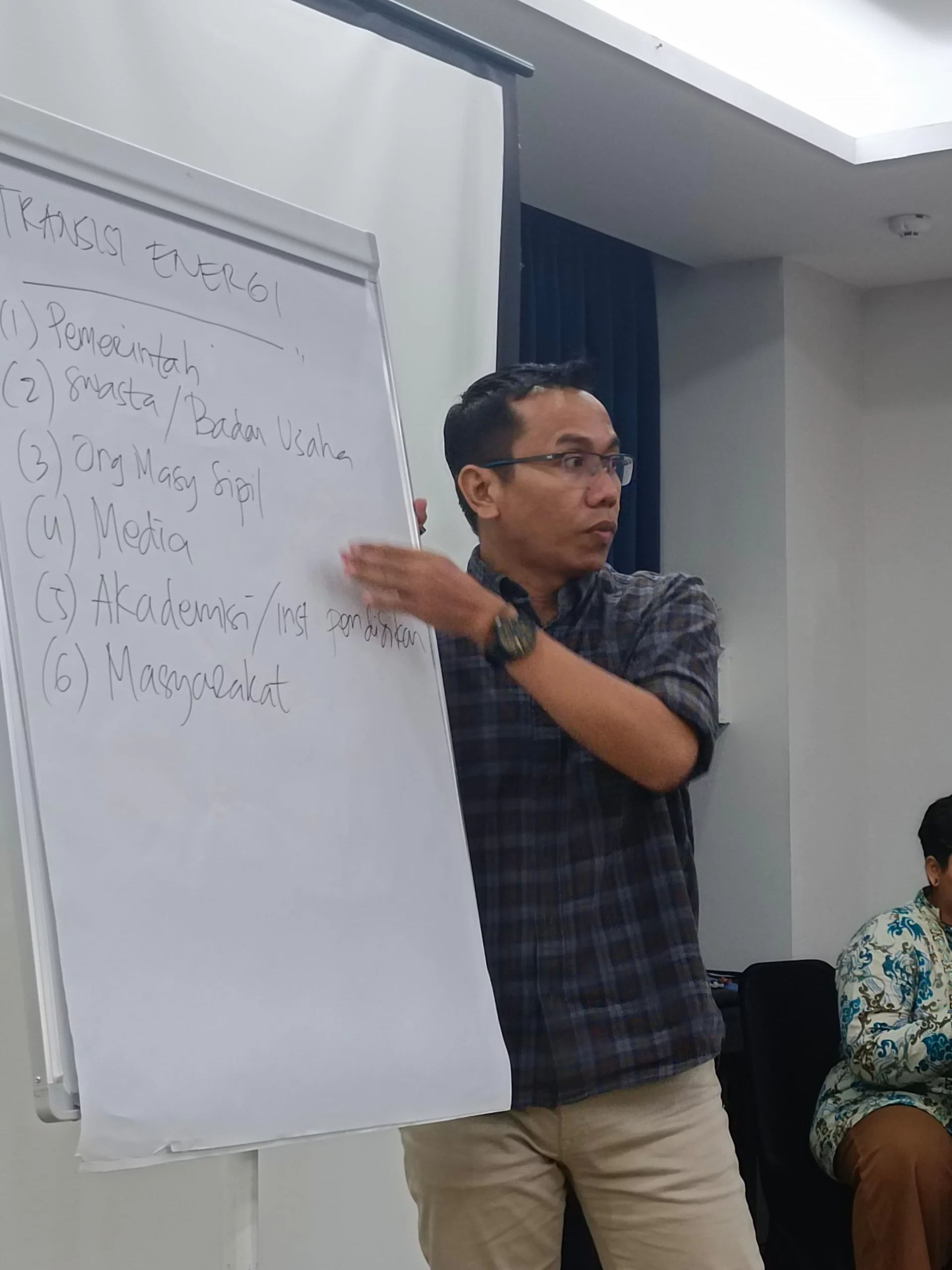Jakarta – Publish What You Pay (PWYP) Indonesia held a Sharing Session with Journalists: Mainstreaming Gender Equality, Disability, and Social Inclusion (GEDSI) Narratives in a Just Energy Transition in Indonesia on June 10, 2024, in Central Jakarta. The event, moderated by Chitra Regina Apris from PWYP Indonesia, featured Aris Prasetyo, Senior Journalist from KOMPAS, as a speaker. The discussion involved representatives from various civil society organizations (CSOs), women’s rights organizations (WROs), and disability organizations (DPOs) to bridge their knowledge and field experiences with the media.
The discussion began by exploring GEDSI and Just Energy Transition issues, which are considered too technical for the general public, thus highlighting the need for more approachable methods to ease public understanding and acceptance. Participants shared their difficulties in making GEDSI and Energy Transition narratives more relatable; many technical terms and language barriers prevent broad community reach, especially among vulnerable groups. They highlighted the information gap between the public and the government and the challenges in integrating gender issues into policy recommendations.
Aris Prasetyo explained that while the issue of energy transition is becoming popular in the mass media, its perspective still largely centers on business actors and the government, failing to reach vulnerable groups such as people with disabilities. Aris added that CSOs have a significant role in voicing the interest by bringing the aspirations of women and people with disabilities. Findings from KOMPAS’s survey showed that 56% of respondents was unaware that the government is pursuing an energy transition, and 58% did not know the causes of global warming. This indicates the irrelevance of GEDSI and Renewable Energy Transition issues for the Indonesian public. On the other hand, 59% of respondents believed that government policies related to the energy transition are still lacking.
To encourage the government to mainstream GEDSI narratives and Just Energy Transition, the role of the media is essential. First, building partnerships with the media is viewed to be desirable. This partnership can be done through informal and formal channels. Second, conducting consistent public campaigns on social media. Consistency in public campaigns on social media will generate fidelity in the campaign mobilization. Third, using inspiring stories that can attract the attention and support of the public and the government. Fourth, using data-driven approach in every campaign will heighten the urgency of the issues being highlighted. The data should come directly from primary sources. For instance, regarding disabilities, prioritizing people with disabilities’ points of view as primary sources. The importance of facilitating marginalized voices is that accommodating these voices will certainly aggregate the interests of other groups.
Efforts to mainstream GEDSI and Sustainable Energy Transition narratives must be able to disaggregate the general lens towards diverse community groups before pivoting to the interests of the community as a whole. An adaptive and collaborative approach between CSOs, the media, and the government is crucial to achieving this goal.
The participatory discussion resulted in identifying other challenges, including competition between mainstream and alternative media. The use of language that accommodates cultural changes in Generation Z and social media demands that CSOs adapt and compete to mainstream the issues they want to promote. Active participation at the local level is also an important point that cannot be overlooked.
Author: Muhammad Adzkia Farirahman
Reviewer: Aryanto Nugroho
